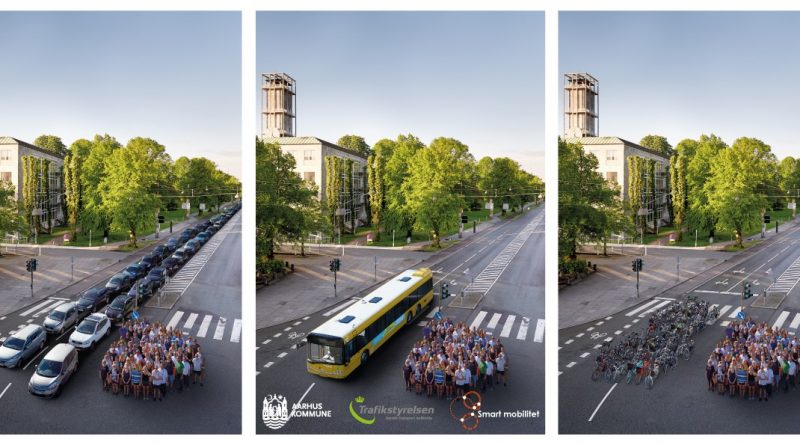Documentation of implementation of different mobility solutions such as car-pooling including electric vehicles and their charging
Picture: Aarhus Kommune
The scope of the deliverable is to document and asses the demonstration and implementation of
different mobility solutions such as car-pooling including electric vehicles and their charging.
The deliverable D5.6.1 is based on the demonstration of the models/concepts described in deliverable
4.6.1 elaborated in April 2017 and has three main objectives; two of them being the same as in
deliverable 4.6.1:
- To describe in which mobility context, the mobility management models will be elaborated
- To briefly describe the challenges in the EV markets in Denmark and Sweden
- To give an description of mobility models/solutions demonstrated and update on implementation
of mobility solutions according to sustainable mobility strategies in Aarhus and Växjö.
Both Aarhus and Växjö work to improve the mobility systems in the city, providing good mobility
options for the citizens and for the guests to the cities. Well aware, that the transport sector is also
being the biggest challenge to reach future climate targets, it is important to incorporate measures
that can support further up-take of EVs. This will further be elaborated in this report.
The mobility management measures or models to increase EV mobility in the cities described in this
report can be divided in to the following topics and their key results:
- Electrical Charging Stations – the number was doubled in Växjö from 40 in spring 2017 to 80
in the summer of 2018. Furthermore, the number of EVs and hybrids have increased by 60%
and 77% respectively in Växjö and the number of EVs increased by 5% in Aarhus only because
of the Tadaa! car sharing scheme. - The municipal fleets – The share of EVs in the municipal fleet in Växjö went from 10% in spring
2017 to 11.8% in the summer of 2018. - Car-sharing models have been tested and evaluated in Aarhus. Although different schemes are
existing, they are all struggling to really stay viable. The number of LetsGo cars in Aarhus has
decreased by 5.8 % from 2017 to 2018, Tadaa cars which were introduced to the market during
the project period did expand, but not to the extent that was hoped for and city cars have
never been implemented in Aarhus. - Promotion of electrical bikes. Successful promotion of electric bikes has been carried out in
both cities. More than 200 loans from the bike library from 2015-2017 as well as two successful
trial projects have carried out in Aarhus. In Växjö a new European project is focusing
specifically on electric cargo bikes. - Introduction of electric/hybrid buses in public transport. A tender has been carried for one
specific electric bus route. From summer 2019 the bus line will be fully equipped with electrical
buses and dedicated charging facilities. In Växjö procurement of electric buses is being
prepared.
Want to know more?
Delivery no. D.5.6.1 Documentation of implementation of different mobility solutions such as car-pooling including electric vehicles and their charging.
Please contact: Mr. Gustav Friis, Aarhus Municipality, guf@aarhus.dk

